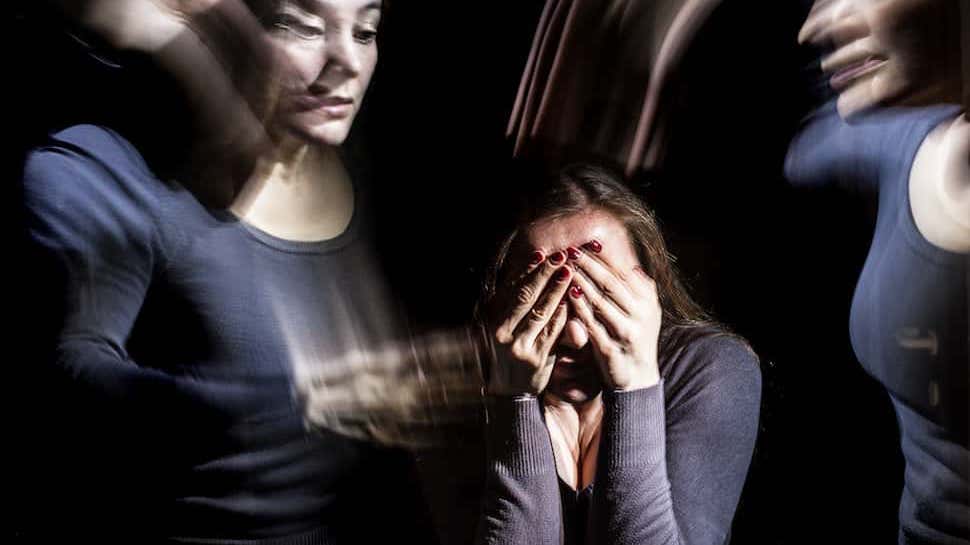
Can Marijuana Cause Psychosis?
Marijuana use is known to cause psychosis in some people. In most cases, the psychotic symptoms, which may include delusions and hallucinations, are acute. They set in quickly and resolve quickly, but the symptoms may also be severe and cause significant distress and impairment in functioning. Marijuana-induced psychosis should be treated, and those who experience it should be screened for any underlying mental illnesses, particularly psychotic conditions.
Substance-induced psychosis is a known and recognized mental health condition that is outlined in the Diagnostic and Statistical Manual of Mental Disorders (DSM-5). The DSM-5 is used by mental health professionals to diagnose patients. There are many different drugs, both illicit and prescription, that are capable of triggering psychosis. One of those recognized as possibly causing psychosis is marijuana.
Known as marijuana- or cannabis-induced psychosis, the condition is typically acute and temporary but may constitute a medical or mental health emergency. Treatment is important to keep the person experiencing psychosis safe. Many people also need ongoing treatment, for substance use disorder or underlying mental illnesses.
In addition to acute psychosis, there is evidence that marijuana use is also linked to a greater risk of having a mental health condition with psychotic symptoms, like schizophrenia or bipolar disorder.
What is Psychosis?
Psychosis is a group of symptoms related to mental health but is not a diagnosis or a condition by itself. A person may experience psychosis caused by any number of factors, but most often it occurs as part of a specific mental illness. Schizophrenia is the most common mental illness that causes psychosis, but others include bipolar disorder, schizoaffective disorder, and major depression with psychotic features. Psychosis can also be caused by head injuries, brain tumors, degenerative brain diseases, infections, and other illnesses. Substance use may also cause psychosis.
There are several symptoms that someone experiencing psychosis may have, but all are related to losing touch with reality. The two most characteristic psychotic symptoms are hallucinations and delusions. Hallucinations are sensations that don’t really exist but that the person believes are real. These can include voices, sounds, images, or sensations of touch. Delusions are false beliefs that a person has despite evidence. Common delusions are paranoia and suspicion of others and a sense of grandiosity.
Another symptom that psychosis may cause is dissociation. This is an experience of being separate from reality, such as feeling outside of one’s body. It may also cause someone to feel as if people and things around them aren’t real. Additionally, psychosis may cause disordered and chaotic thoughts, which in turn causes jumbled speech that is difficult for others to understand. Psychosis can change a person’s emotional affect as well, leading to inappropriate emotional reactions and physical agitation. Finally, psychosis may cause catatonia in some people.
Acute Marijuana Psychosis
Marijuana use can cause psychosis and any one or more of the psychotic symptoms. For most people who experience this, the symptoms are acute. This means they set on quickly with use of the drug and resolve soon after the drug has left the body. Recovery time for cannabis-induced psychosis is usually short, although there may be other issues to resolve, such as substance use disorders or an underlying mental illness.
Someone who is experiencing marijuana-induced psychosis may experience any of the symptoms of psychosis. There are some that are more common, though, including delusions. Cannabis-induced psychosis most often triggers paranoia, suspicion, and other types of delusions. The experience can be distressing and may require emergency treatment if the person is extremely distressed or at risk of harming himself or herself or others.
Begin Your Recovery Journey Today.
619-466-0547Diagnosing Marijuana-Induced Psychosis
The DSM-5 lists criteria for diagnosing psychosis caused by cannabis use. In some cases it may be difficult to make a diagnosis because of a variety of contributing factors. A mental health professional needs to rely on a medical examination, family history, personal history of mental illness and substance abuse, and toxicology and lab tests to make a firm diagnosis.
According to the diagnostic criteria, substance-induced psychosis occurs when the psychotic symptoms appear during substance use or withdrawal, or within one month of use or withdrawal. This leaves a fairly large window of time in which there may be other contributing factors. However, many cases of cannabis-induced psychosis occur as the person is intoxicated, making diagnosis easier.
Criteria also include the fact that the psychotic symptoms cannot be better explained by a mental health condition. Evidence that the symptoms are caused by mental illness and not marijuana include persistence of symptoms for a month or more after using the drug, experiencing symptoms before using the drug, or experiencing more severe symptoms that would be expected from the drug use. Finally, to make a diagnosis, the symptoms of psychosis must be serious enough to cause impairment in how a person functions or significant distress.
Marijuana and Psychotic Disorders
Marijuana-induced psychosis is a diagnosable condition, but some people who experience this may also have a mental health condition that includes psychosis. Studies have connected schizophrenia in particular with marijuana use. Whether marijuana use contributes to or causes schizophrenia, or having schizophrenia makes a person more likely to use marijuana, is not clear. It may be that both are true and contribute to the connection between the two.
It is well known that people who struggle with mental illness, especially when undiagnosed and untreated, are more likely to abuse substances and to develop substance use disorders. While marijuana may contribute to psychotic conditions, it is also likely that someone who has one of these conditions uses the drug as a way to self-medicate.
Studies have also shown that someone who is predisposed to have a psychotic disorder like schizophrenia is more likely to develop the condition if they use marijuana. There is also evidence that for someone living a psychotic condition, even if diagnosed and treated, use of marijuana can trigger a psychotic episode. The effect of marijuana use on the development or onset of psychotic disorders is most likely to occur when the drug use is during adolescence or early adulthood. Psychotic conditions like schizophrenia rarely develop later in life, so any contributing causes are more important while the brain is still developing.
Is Drug-Induced Psychosis Impacting Your Life?
Our Unique Treatment Model can Help
How to Recover from Acute Psychosis – The Importance of Treatment
Cannabis-induced psychosis often resolves itself once the drug has cleared the body, but in many cases the symptoms are distressing enough to warrant immediate treatment. Treatment may be administered in an emergency room, a psychiatric hospital, or a residential facility that specializes in mental illness or substance use disorders. Immediate treatment usually includes supervised detox, so the drug can leave the body, and keeping the patient in a calm environment. Antipsychotic medications may be used to help relieve the symptoms more quickly.
It may be easy for someone who experiences cannabis-induced psychosis to brush it off once the symptoms have passed and to ignore the need for treatment. However, many people in this situation have an underlying mental illness, possibly a psychotic condition, a substance use disorder, or both, and needs to be treated on an ongoing basis to prevent or minimize any future psychotic episodes.
Anyone who has experienced cannabis-induced psychosis should be screened for mental illnesses and should consider cessation of drug use. One episode of substance-induced psychosis predisposes a person to have another, so avoiding drugs of any kind is recommended. Treatment for any underlying conditions or substance use issues is best done in residential care for most patients. This setting provides a calm and safe environment in which a person can focus on treatment and on learning how to live without using substances or with a chronic mental illness.
Residential treatment for substance-induced psychosis and related conditions typically revolves around behavioral therapies. These are treatments that help a patient learn to recognize and identify symptoms and negative thoughts and behaviors and take steps to change them. Therapists also teach patients how to use healthy coping mechanisms and stress-relief strategies, and how to make healthy lifestyle changes to support better mental health. Treatment may also include medications if appropriate.
Anyone who uses marijuana is at risk for experiencing psychosis, although most people will not. Those with underlying mental illness have a greater risk of having psychotic symptoms with marijuana use. The symptoms can be very distressing and should be managed immediately with medical or mental health treatment. Ongoing treatment is also important because of the potential for other mental health issues. With good residential care and a commitment to making lifestyle changes once back at home, someone who has had psychosis triggered by cannabis can live a normal life and learn to avoid substance abuse.



